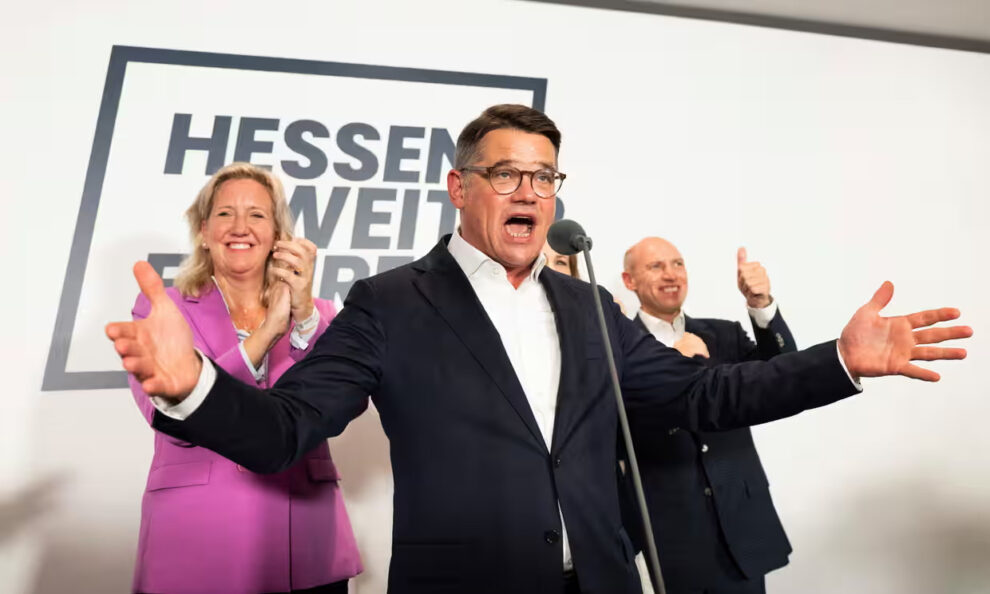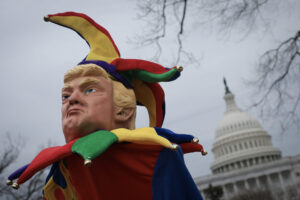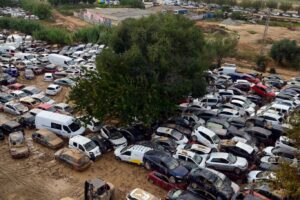German chancellor Olaf Scholz’s fractious centre-left coalition has received a sharp rebuke from voters in the key states of Bavaria and Hesse, with economic woes and immigration fears boosting the opposition conservatives and the far right.
At the elections on Sunday the far-right Alternative for Germany (AfD) party burst out of its post-industrial eastern strongholds to score its best ever result in a western state. Polls showed it on course to be the second largest party in Hesse, home to the financial capital Frankfurt.
All three parties in Scholz’s federal coalition – his Social Democrats, the Greens and the pro-business Free Democrats (FDP) – did worse than five years ago in the states, which together account for about a quarter of the German population.

The FDP even looked on track to fail to reach the 5% threshold to enter parliament in both states.
Analysts said this would further stoke tensions in a coalition that has struggled to find common ground, with Scholz accused of failing to show the leadership needed to impose order and tackle crises from war in Ukraine to the green transition.
“If necessary the FDP needs to be ready to leave [the coalition],” Thomas Kemmerich, head of the FDP in the eastern state of Thuringia that is to hold its own election next year, was quoted as saying by German media outlet The Pioneer. This cannot be a taboo.”
Jens Spahn, a senior legislator for the conservative Christian Democrats (CDU), said rarely had a government been given such a comprehensive slapdown. “And rarely has it been so clear: whether on migration, the economy or climate policy, people want a different politics.”
In Hesse, the CDU were forecast to get 34.5% of the vote for the state legislature, probably allowing them to govern for another term.
The SPD’s 15.1% – down 4.7% on its 2018 results – was a personal blow to interior minister Nancy Faeser, whose campaign to head the state was dogged by criticism of her handling of a surge in irregular immigration.
Meanwhile the CDU’s sister party the Christian Social Union (CSU), which has run Bavaria since 1957, was projected to win 36.4% of the vote in that state – its worst result since 1950, although only a fraction below 2018’s.
The CSU is expected to continue its coalition with the populist Free Voters on 15.3%. They and the AfD were the only parties to make gains in the Bavaria election.
The AfD was on track for 18.4% in Hesse and 16% in Bavaria, compared with 13.1% and 11.6% respectively in 2018, confirming the political ascendancy of a party created just 10 years ago.
The nationalist, anti-migrant AfD is polling in second place nationwide, up from fifth in the 2021 election, in a shift that could make it harder for Germany to form stable majorities given that other parties refuse to work with it.
Source : The Guardian









